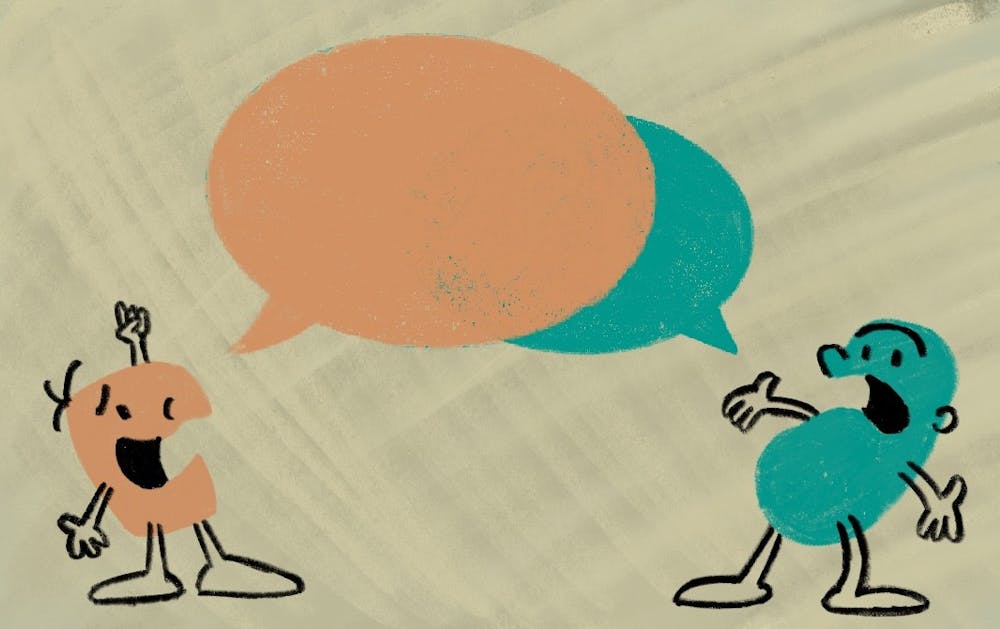After news of the new coronavirus reaching campus last week, ASU swiftly responded by denying to cancel classes and reassuring students the affected person is in quarantine.
However, ASU's response was met with memes and a petition for classes to be canceled.
As of Friday, there have been 31,481 confirmed cases of the 2019 Novel Coronavirus globally, according to the World Health Organization. Of those cases, 638 have resulted in death.
Compare that to Sunday's numbers of just 14,557 cases and 305 deaths, and it becomes clear that fears of this virus are not just the result of mass hysteria and over-hyped media coverage, as has been the case with past epidemics.
The new coronavirus is a real, growing threat to global health; recently, WHO declared it a public health emergency of international concern.
On Jan. 26, the fifth confirmed case in the U.S. was identified as belonging to a member of the ASU community and a resident of Tempe, and an online petition urging the cancellation of classes and the release of additional information to the public has amassed over 25,700 signatures since then.
Considering the varying opinions of the virus's potential risk and the apparent likelihood of person-to-person transmission if an outbreak occurred on campus, the University should reconsider its position of inaction by canceling classes and closing buildings until they can be thoroughly sanitized.
In addition, the University should consider the needs of students, faculty and staff with compromised immune systems — who are at an elevated risk for contracting the virus and developing severe symptoms from it.
If the University fails to protect its most vulnerable populations — including those with compromised immunity — it also fails to uphold its most sacred goals and values.
Mark Searle, ASU's executive vice president and university provost, issued a statement on Jan. 27, stating, "We have received many inquiries about University operations in light of this case. The University remains open and classes are not canceled."
Searle also cited the Arizona Department of Health Services and the Centers for Disease Control and Prevention by saying "based on current information, the immediate health risk from the new coronavirus to the general American public is considered low at this time."
Dr. Kevin T. Stephan, an infectious disease specialist with eInfectionMD, a Phoenix-based telemedicine provider, said that the virus is growing quickly in the locations that were hit the hardest, but also stressed that the U.S. has significantly less cases than China.
"A lot of people have asked me about the masks because there's been a gold rush on masks," Stephan said. "What I would say is that there's not really good evidence that a surgical mask will protect you from the virus."
He instead stressed the importance of frequent hand-washing and avoiding people who are visibly ill.
"If your immune system is weak, try to avoid contact with people who are ill and avoid large crowds in buses and shopping malls," he said.
While the CDC does state that the immediate health risk the new coronavirus poses is considered low, it also states on its website that "it’s likely that person-to-person spread will continue to occur, including in the United States."
In addition, the WHO assesses the risk at the global level as being high.
Citing the disease's sustained person-to-person transmission outside of mainland China, the WHO also declared the outbreak to be a public health emergency of international concern on Jan. 30, saying "(the committee) also acknowledged that there are still many unknowns, cases have now been reported in five WHO regions in one month, and human-to-human transmission has occurred outside Wuhan and outside China."
On Jan. 31, Alex Azar, secretary of the U.S. Department of Health and Human Services, declared the virus a public health emergency.
President Donald Trump also instituted travel restrictions on foreign nationals who have recently traveled to China, in addition to mandatory quarantine for Americans returning from Hubei province, where Wuhan — the outbreak's epicenter — is located.
Considering all this, ASU should be handling the new coronavirus for what it is — a threat to its community — and cancel classes, close buildings and better consider the needs of its students, faculty and staff.
Reach the columnist at bdoemel@asu.edu or follow @brockdoemel on Twitter.
Editor’s note: The opinions presented in this column are the author’s and do not imply any endorsement from The State Press or its editors.
Want to join the conversation? Send an email to opiniondesk.statepress@gmail.com. Keep letters under 500 words and be sure to include your university affiliation. Anonymity will not be granted.
Like The State Press on Facebook and follow @statepress on Twitter.




